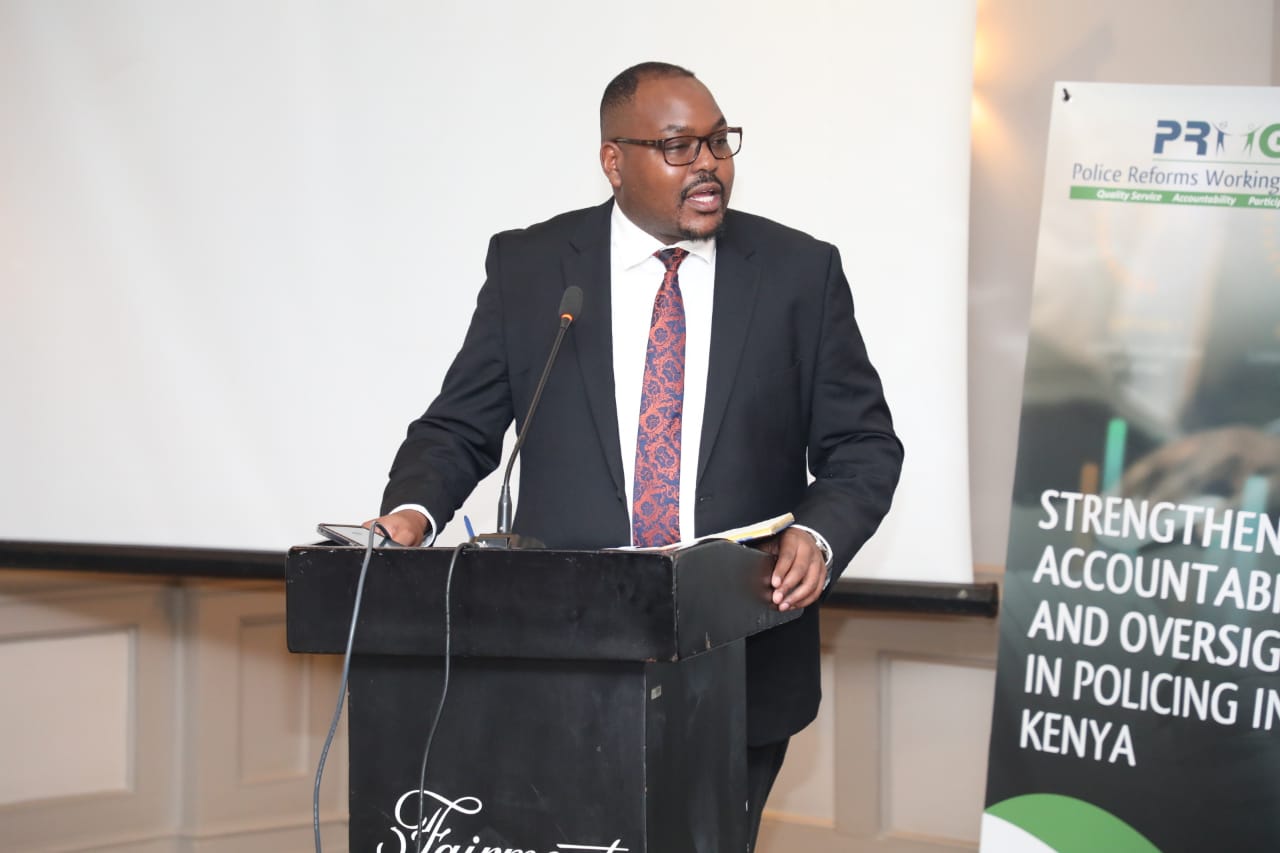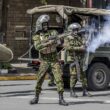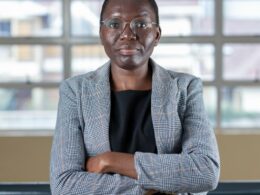By Shukri Wachu
NAIROBI,Kenya – At first glance, Demas Kiprono’s towering presence might seem intimidating, his six-foot-three frame casting a long shadow over those he encounters. Yet, it’s precisely this imposing stature that becomes a beacon of reassurance and strength for the countless individuals he champions.
A human rights advocate and the Ag. Executive Director at The Kenyan Section of the International Commission of Jurists (ICJ Kenya), Kiprono’s imposing figure belies a gentle spirit and unwavering commitment to justice, endearing him to the causes and people he tirelessly serves.
Across Kenya, where the echoes of bustling streets blend with whispers of injustice, his voice within the Civil Society space is among those that rises above the rest. Interestingly, growing up in Eldoret town, his path in life appeared set, he says, his raison d’être, particularly after encountering the late Bishop Alexander Muge, was firmly set on championing for human rights and fighting for a democratic society.
“I grew up with human rights consciousness because of my family’s association with the Late Bishop Alexander Muge. As a child, I knew what he stood for and that he could not be deterred from what he believed by political pressure or correctness,” said Kiprono.
The same values and attitudes Muge espoused, would even go on to get Kiprono suspended from high school and later as a first year student at Moi University for demanding accountability.
“I remember when Muge died, it feels like yesterday. This experience shaped me to be bold, truthful, and outspoken, to be sensitive to everyone’s opinion and experience, and to advocate for the plight of the underrepresented and marginalised,” he noted.
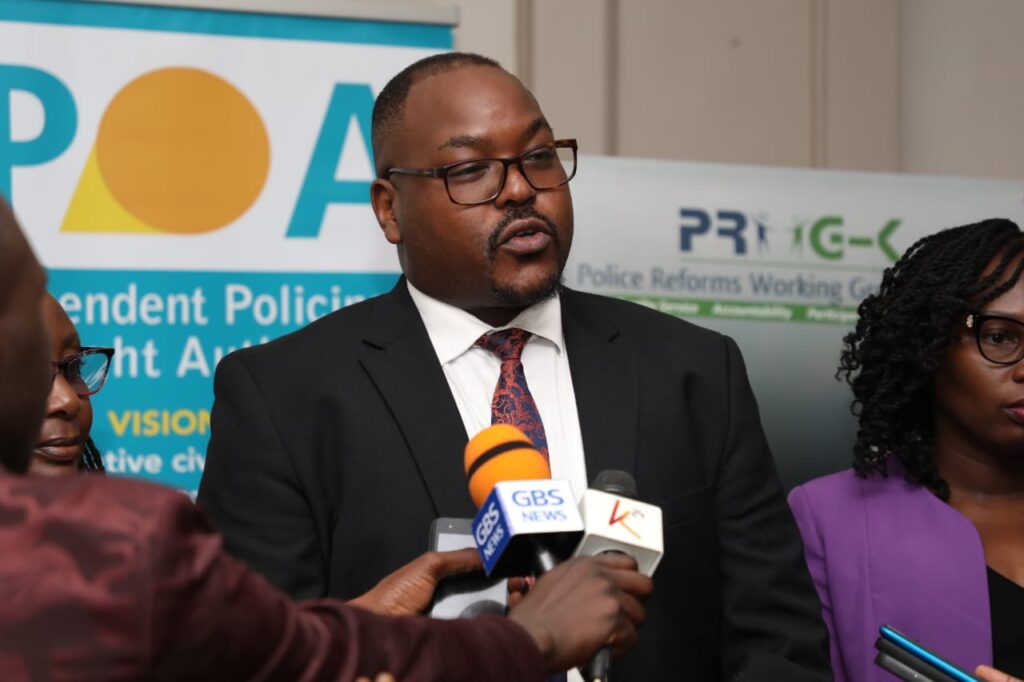
Despite initially contemplating a career in journalism, his enthusiasm for the law, swayed him to pursue a noble career as a lawyer and human rights advocate. Kiprono would eventually decide to specialize in security sector reforms, freedom of expression, technology and human rights.
He says his bias for championing for good policing practices and human rights within law enforcement was driven by his experiences, especially living through and witnessing the tribal tensions and clashes in the 1990s, and even the atrocities that were committed during the 2007/08 post election violence (PEV) which highlighted the role of policing in safeguarding as well as potentially violating rights.
“The Waki report detailed the role policing played in protecting as well as harming Kenyans. After independence, the police were never reconfigured or realigned away from protecting the colonial regime to serving the people and protecting their rights. Instead, they became tools for protecting and preserving the black African regime and the political class rather than the people, the people’s rights and the constitution,”
During Kenya’s flashpoints in the 1990s, early 2000s, and after the 2007 PEV, Kenyans demanded a realigned and reformed police that embraced democratic, intelligence-based, and community-based policing.
This led to the creation of IPOA, NPSC, and IAU and the creation of an independent Inspector General to divorce policing from regime whims, create civilian and internal oversight, and inculcate professional human resource management.
“My role for the last 12 years has been to ensure that Kenyans finally get the policing that they promulgated and deserve, where human dignity, rights, and the constitution are the yardstick and not cyclical regime politics. Where police human resource management and welfare are catered to allow officers to thrive as dignified professionals,”
Within the corridors of justice, his presence is also not strange, Kiprono has actively led civil society organizations in representing victims, survivors of unlawful policing and their families and contesting repressive proposed laws that attempted to curtail the rights and freedoms of Kenyans.
“During the Security Laws Amendment Act constitutional petition, I was part of the team that successfully argued against amendments that attempted to use the rise in terrorism to justify the clawback on human rights enshrined in the hard-fought 2010 constitution,”
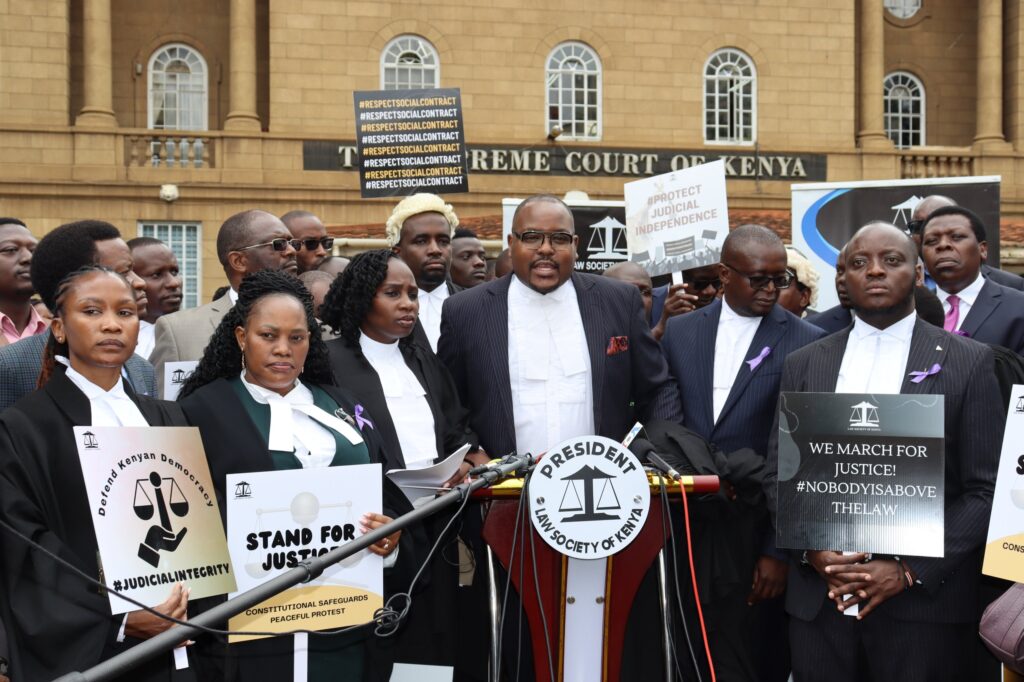
The law attempted to require journalists to seek permission from the Inspector General of Police before publishing pictures and stories about terrorism. It also attempted to expand surveillance without judicial oversight and water down the power of the National Police Service Commission through the creation of the IG-led disciplinary committee.
While advocating for the need for accountability within the police service, especially on matters regarding enforced disappearances and extrajudicial executions, Kiprono has dealt with real and perceived threats especially after the killing of his friend and colleague Willie Kimani. As he says his experiences have only gone on to transform his resolve into an unyielding mission.
As a leader within the civil society space, he is a part of various noble initiatives including the missing voices coalition and police reforms working group that continues to diligently sensitize communities on the need to report instances of crime within their communities as well as setting up various grassroots level led forums and dialogue platforms that bring together security sector duty bearers together in order to cultivate a culture of mutual understanding and promote good community policing practices.
The ICJ Kenya Ag. Executive Director has seen first hand the great work police do in keeping their communities safe.
“I have been saved by the police on two occasions, once when I was monitoring a political rally, and goons descended on my former colleague and me, and secondly, after I had been carjacked in the city, taken to Mukuru Kwa Njenga and thoroughly beaten up, stripped and forced to cross the river during the May rains in 2011,”
It is for this reason that he is spearheading various efforts to restore dignity to police officers within the service especially those grappling with issues of mental health concerns,poor working conditions and unfair deployment, promotion, transfers and career progression.
“There is a mental health crisis going on among the police that has occasioned several incidences where police officer fatally shoot their colleagues and turn their guns on themselves. We understand that policing is a stressful job occasioned by the working hours, the gory crimes and scenarios that they witness and the high-risk nature of the job where they often run towards trouble whilst others are fleeing. This is made worse by the unfairness of superior officers, an ineffective NPSC and a lack of mental health awareness, training and treatment,” explained Kiprono.
Recently, he presented a memorandum to the Maraga-led National Taskforce on Police Reforms, hoping that the report’s recommendations will transform the police into a bastion of an effective and accountable service.
“If the reforms enjoy political will, which ensures that the necessary changes are made for the betterment of Kenyans, we may be on the cusp of a new police service that will transform the relationship between communities and police. However, if it is treated like the other reports, another opportunity will be lost.”
This Feature Profile was first published on the People Daily Newspaper.





